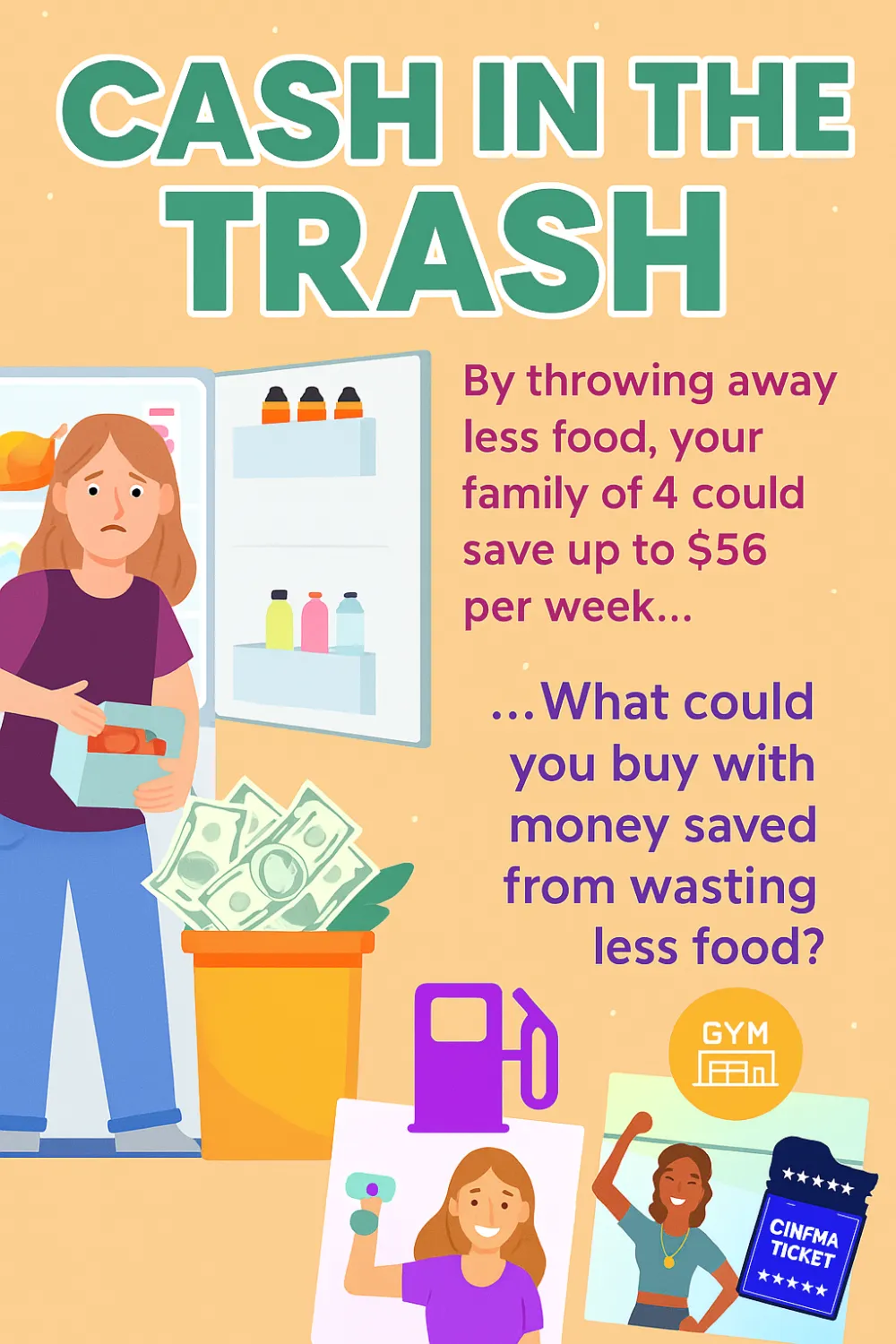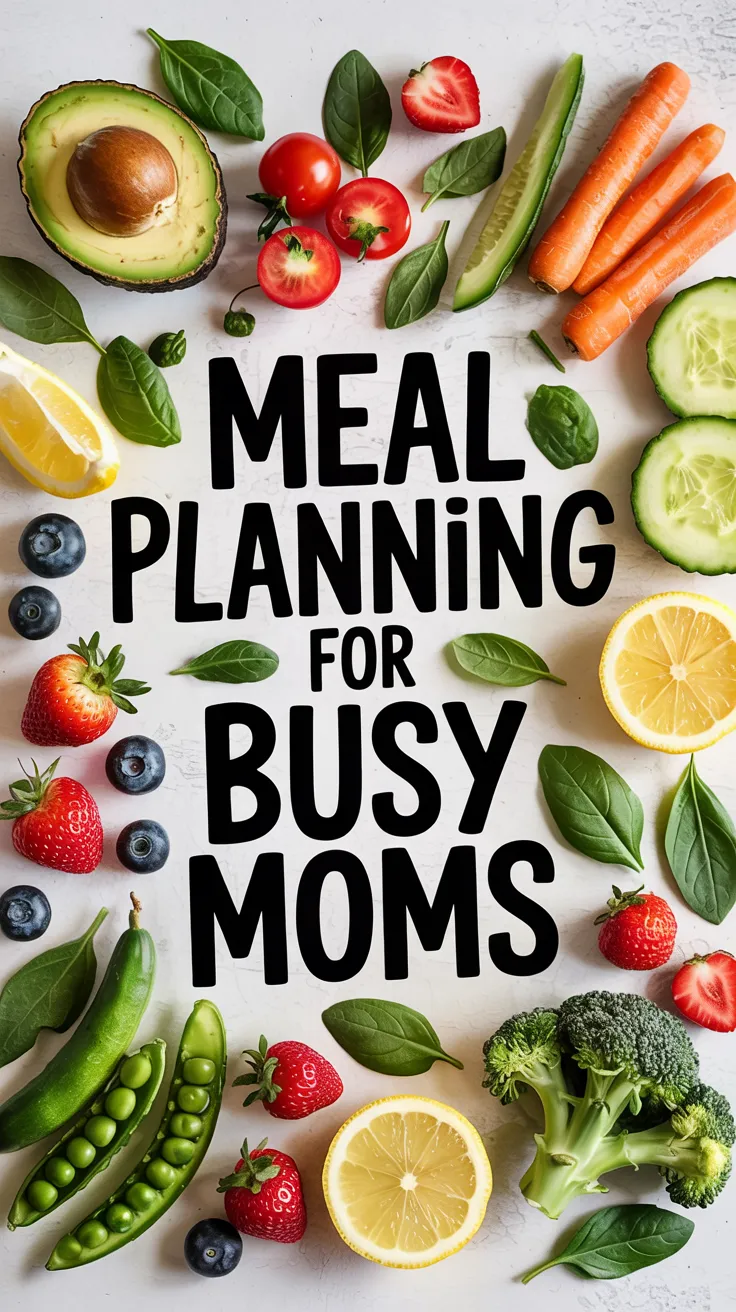The content on this site may include affiliate links. As an Amazon Associate I earn from qualifying purchases. This means that, at zero cost to you, we will earn an affiliate commission if you click on one of the links and buy something.
Burned out on meal planning? You’re not alone. This post shares 7 easy ways to reset your routine when you’re tired of planning meals, without giving it up completely. No guilt, no pressure—just realistic strategies to make it easier.
When You’d Rather Eat Cereal Than Plan One More Dinner
Let’s be honest: meal planning is great—until it’s not.
You start out strong, saving money, feeling organized… and then, somewhere around week six (or, let’s be real, week two), you hit a wall.
Suddenly, staring at the planner feels like a chore. You’re sick of all your go-to meals. The thought of writing “tacos” again makes you want to throw the notebook out the window. And takeout is starting to look real tempting.
Sound familiar? You’re not failing. You’re just tired. And that’s okay.
Meal planning burnout is completely normal. You’ve been making meals, feeding people, and doing the mental gymnastics of grocery lists and scheduling—and that takes a toll.
But here’s the good news: you don’t have to give up meal planning altogether.
You just need to make it easier for a while.
In this post, I’ll walk you through simple, doable ways to reset, scale back, and keep going—even when you’re totally over it.
Ready to bring a little ease back into your kitchen? Let’s start by remembering why you started in the first place.
1. Remember Why You Started
When you’re staring at a blank meal plan feeling totally unmotivated, the best place to begin isn’t with a recipe—it’s with a reminder.
Why did you start meal planning in the first place?
- Was it to stop doing last-minute grocery runs with hungry kids in the backseat?
- To save money by eating at home more often?
- To feel a little more in control of your evenings?
- To avoid that nightly stress spiral of “What’s for dinner?” at 5:00 p.m.?
Whatever it was, reconnecting with that why can help you push through the burnout and find your footing again.
Meal planning isn’t about being perfect.
It’s about making your week just a little bit easier.
And when it’s working—even in the most basic, bare-minimum way—it really does help. Your evenings run smoother, your grocery bill shrinks a little, and your mental load lightens (even if just for a day).
So if you’re feeling stuck, pause the planning and remind yourself what you’re doing it for. That clarity can give you just enough energy to keep going—even if it’s a scaled-back version for now.
Next up: Let’s lower the bar and talk about how less planning might actually be the key to getting through the burnout.
2. Lower the Bar (Seriously)
If meal planning is starting to feel like another job, it might be time to dial it way down—and that’s not slacking off, that’s being smart.
You don’t need to plan seven dinners.
You don’t need to map out breakfast, lunch, dinner, and snacks for the whole family every day of the week.
You don’t even need to come up with brand-new ideas every time.
If you’re burned out, scale it back.
Try this instead:
- Plan three meals for the week and let the rest fall into place with leftovers, freezer meals, or sandwiches
- Use theme nights like “Pasta Monday,” “Taco Tuesday,” or “Breakfast-for-Dinner Friday” so you don’t have to reinvent the wheel
- Make one dinner stretch over two nights—leftovers are meal planning magic
- Choose meals with the fewest moving parts (hello, sheet pan dinners and slow cooker saviors)
This is how you get through the slump. Not by pushing harder—but by letting things be simpler.
Meal planning is a tool, not a to-do list.
When you’re over it, give yourself permission to do the absolute minimum that still makes your life easier.
Coming up next: I’ll show you how repeating meals—on purpose—can be the mental break you didn’t know you needed.
3. Repeat Yourself (On Purpose)
Here’s a little secret: most families already eat the same handful of meals on repeat. So instead of fighting it, why not use it to your advantage?
Repetition isn’t lazy. It’s efficient.
If taco night works, bring it back.
If your kids actually eat spaghetti without a fight, keep it in the rotation.
If you already know how to make it, you’re saving time and brainpower—and that’s the real win.
Here’s how to make it work:
- Embrace themed nights: Taco Tuesday, Slow Cooker Wednesday, Pizza Friday. It’s comforting, not boring—and it takes the guesswork out of planning.
- Rotate family favorites: Make a list of 10 meals your crew loves and just cycle through them for a while. If they’re happy, and you don’t have to think too hard, it’s a win.
- Make “Same but Different” swaps: Tired of pasta with red sauce? Do pesto. Or alfredo. Or just roasted veggies and olive oil. Tiny tweaks = fresh vibes with zero effort.
During burnout, sticking with what works isn’t just okay—it’s smart.
Decision fatigue is real, and familiar meals take less energy, less time, and way less mental gymnastics.
Coming up: You don’t even have to think of those meals on your own. Let’s dig into your own archive of past wins and steal from yourself (it’s allowed).
4. Steal Ideas From Past Weeks
When your brain feels like mush and you can’t think of a single dinner idea that doesn’t involve cereal, here’s your best move:
Steal from yourself.
Seriously—if you’ve ever planned a week of meals that actually worked, use it again.
Here’s how to do it:
- Flip back through old meal plans (paper, notes app, Google Docs—wherever you keep them)
- Pick 3–4 meals that were easy to make and got the thumbs-up from your family
- Copy and paste. Or literally just repeat the whole week if it was a good one
- Bonus: Keep a “hits list” of meals that were simple, tasty, and not a total disaster
You don’t need a new menu every single week. You need a few go-to plans that are easy to pull out when your motivation is low.
Meal planning doesn’t get points for creativity—it wins when it helps your week run smoother. And using your own best ideas? That’s not cheating—it’s just working smarter.
Next up: Let’s make life even easier by adding a shortcut or two—because sometimes survival mode calls for frozen rice and pre-chopped onions.
5. Try a New Shortcut
When you’re over meal planning, one of the kindest things you can do for yourself is take a shortcut—on purpose.
This is not “cheating.” This is surviving with style.
Shortcuts are tools, not failures.
If peeling, chopping, or prepping from scratch is the thing that makes dinner feel impossible, skip it.
If cooking at all feels like too much some nights, make it easier. That’s the whole point of meal planning—to make things easier.
Try these burnout-friendly shortcuts:
- Buy the chopped veggies – onions, carrots, broccoli slaw. Worth every penny on weeks you’re running on fumes.
- Use frozen sides or premade components – frozen rice, mashed potatoes, veggie burgers, rotisserie chicken.
- Double up on meals and freeze the extra – one for now, one for next week when you really need a break.
- Do grocery pickup or delivery – shopping without the stress of dragging everyone through the store? Yes, please.
And if one shortcut makes dinner happen instead of getting canceled?
That’s not lazy. That’s winning.
Meal planning doesn’t mean every meal has to be cooked from scratch or Instagram-ready. It means dinner shows up.
And sometimes the best way to make that happen is to hand off part of the work.
Next: Let’s lighten the load even more by sharing it—yep, it’s okay to let the family pitch in.
6. Involve the Family (If You Can)
Meal planning often turns into a one-woman show—because let’s be honest, we usually are the ones juggling all the pieces. But if you’re burned out? It’s time to share the load—even just a little.
You don’t have to be the sole menu planner, idea generator, grocery list builder, and head chef.
Let your people help.
Here’s how to make it work without turning it into a whole production:
- Let each family member pick one meal for the week
Even young kids can choose from a short list of options (and they’re more likely to eat it if they picked it) - Start a “meal ideas” list on the fridge
Keep a notepad, whiteboard, or sticky note handy—anyone can write down requests or cravings as they come up - Have a “make your own” night
Think: sandwiches, baked potatoes, DIY snack plates. Everyone assembles their own dinner, and you take the night off - Rotate cooking nights if your partner’s game
Even if it’s just once a week, having someone else take over dinner (even a frozen pizza!) gives your brain a break
You don’t have to do all of it alone.
Even just asking your family what they want to eat can make meal planning feel less like a mental marathon.
Up next: The most important reminder of all—you’re allowed to change the plan, take a break, and come back when you’re ready. Let’s wrap this up with a little grace.
7. Give Yourself a Break (And Permission to Pivot)
If you’ve made it this far thinking, Okay, but I still don’t feel like meal planning, here’s the most important thing I can tell you:
You’re allowed to pause. You’re allowed to change the plan. You’re allowed to take shortcuts, skip a week, or just say “not this time.”
Meal planning is a tool. It’s supposed to serve you—not the other way around.
So if you’re burned out:
- Scrap the fancy meals and do grilled cheese three times
- Rotate the same three dinners for two weeks straight
- Switch to survival mode planning (hello, frozen waffles and overnight-oats-for-dinner)
- Or take a full-on break and come back when you’ve got the energy again
This isn’t failure. This is real life.
And the amazing thing is—you can always start again when you’re ready. The habit will still be there, waiting to help you when life calms down.
Meal planning doesn’t have to be pretty. It doesn’t have to be perfect. It just has to be possible.
So be gentle with yourself. Start small. Adjust as you go.
And when you’re over it? Let it be easy for a while.
You’re doing great—even if your meal plan this week is just “whatever we’ve got.”

